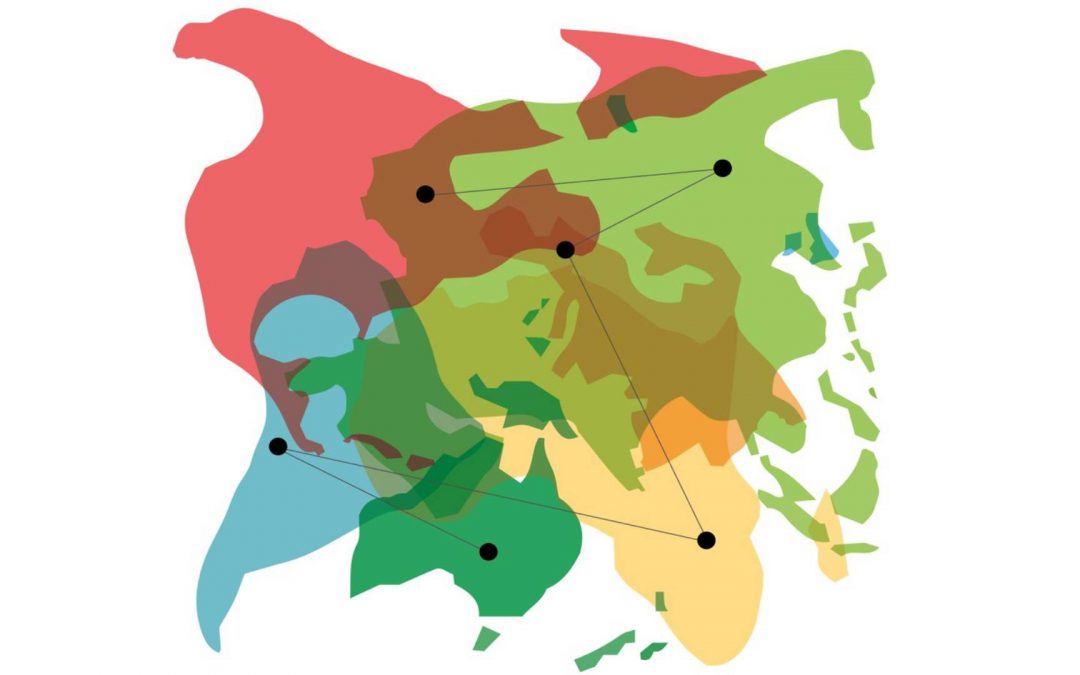The GRIP seminar Towards non-hegemonic social sciences is organising a new session !

©Reserved rights
For the last thirty years or so, debates on a global scale have seen the social sciences torn between accusations of ‘northernism’ and ‘southernism’, between unity and fragmentation, between methodological nationalism and methodological fluidity, between Western hegemony and the temptations of indigenisation. Yet little is known in France about the history and issues at stake in these discussions. Each year, the seminar will welcome various French and foreign researchers working on the issue of hegemony in the social sciences, with the aim of encouraging reflection on the future of disciplines within the framework of global, non-hegemonic social sciences.
Seminar organised by a new team for 2023-2024:
Isabel Georges (IRD-CEPED) and Marie Salaün (Université de Paris-Cité-URMIS)
Wednesday 17th January 2024, 5.30-7.30PM
Speaker: Meta Cramer, University of Freiburg – Germany
Title: Negotiation zones of knowledge: a sensitising concept of global social knowledge production
Abstract: While contributions to postcolonial sociology, Decoloniality, and Southern Theory have critically analysed colonial legacies and global inequalities in the production and circulation of knowledge over the last decades, the practical dimension of knowledge production – as studied in the sociology of science – often remains overlooked. In my talk, I will first briefly present an argument to combine the two fields and then focus on my fieldwork and in-depth interviews with senior scholars in the Anglophone Caribbean in which I learnt about the collective practices of i.a. publishing, teaching, and networking of this scholarly community in dealing with their marginalised position. I will then present a theorisation of the recounted work practices in a middle-range analytical concept of ‘Negotiation Zones of Knowledge‘. This ’sensitising concept’ emphasises the creative engagement of scholars based in the South with global inequalities and colonial legacies of knowledge production and their dynamic change and might inform further comparative studies.
In modelling the social scientists’ practices of knowledge and career-making, I first draw on the notion of negotiation by Stuart Hall, which underlines the relationality and situatedness of knowledge-making practices in power structures. I furthermore specify these negotiation practices as creative action in reference to Hans Joas’ pragmatist work. Thirdly, I employ the concept of zones, building on Marie-Louise Pratt’s work on ‘contact zones’ to capture the different areas of scholarly work practices. Subsequently, I distinguish four zones of knowledge production – public outreach, collaborating, publishing, and teaching – that advance existing conceptualisations of knowledge production as structured in fields or social worlds/ arenas. Overall, model aims to grasp the dynamic, creative and community-oriented practices in which knowledge production in marginalised, formerly colonised spaces is negotiated.
Address
All sessions will take place in room 279F at Halle aux farines, except on 3 April when we will be in 375F, also at Halle aux farines, 9-15 esplanade Pierre Vidal-Naquet 75013 Paris.
À lire aussi

28th November 2024, presentation of the book: Pescando guindas en la siesta
Hebe Vessuri, a member of GRIP's Scientific Council, presents her latest book the 28th November 2024: Pescando guindas en al siesta, editorial SB. © Reserved rights Hebe Vessuri, presents her latest book the 28th November 2024:...

27th November, international symposium SEOSA
The international symposium Societal engagement of organizations and sustainability in Africa: catalysts for resilience in theface of multiple crises? SEOSA will take place the 27th November 2024 in Tunis. © Reserved rights The...

26th and 27th November -24 hours of the same world
24 hours of the same world: what has changed with globalization over the past 25 years? Tuesday November 26 to Wednesday November 27, 2024. The event will end up with a musical intervention and a cocktail ! © Dix-milliards-humains...

CAHIER GRIP : SEMANTIC MAPPING
GRIP has just published its second cahier of SEMANTIC MAPPING. This booklet is the result of work begun in 2021. We're proud to share it with you! © Reserved rights GRIP has just published its second cahier of SEMANTIC MAPPING. This...
